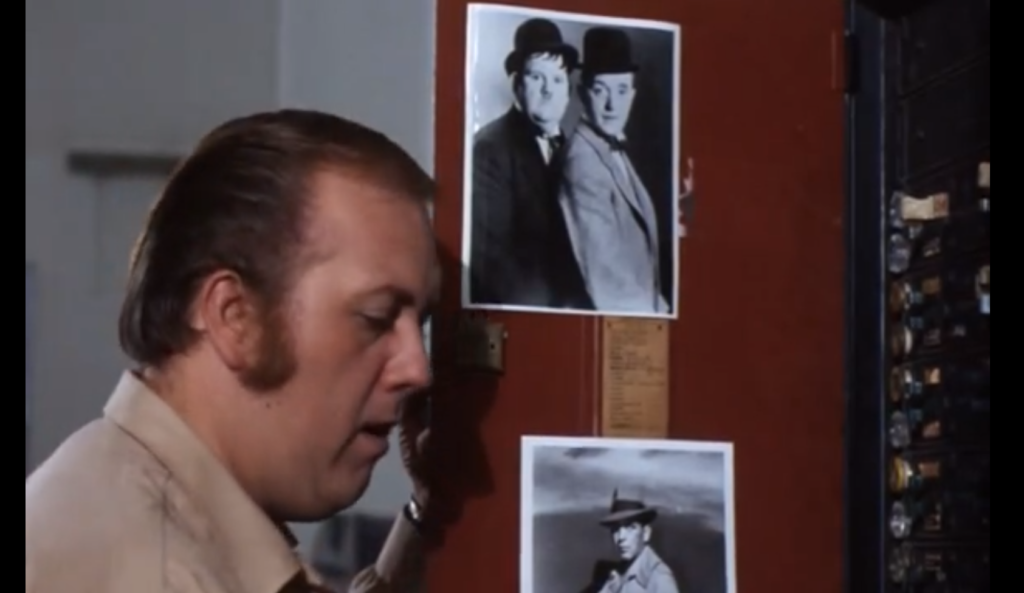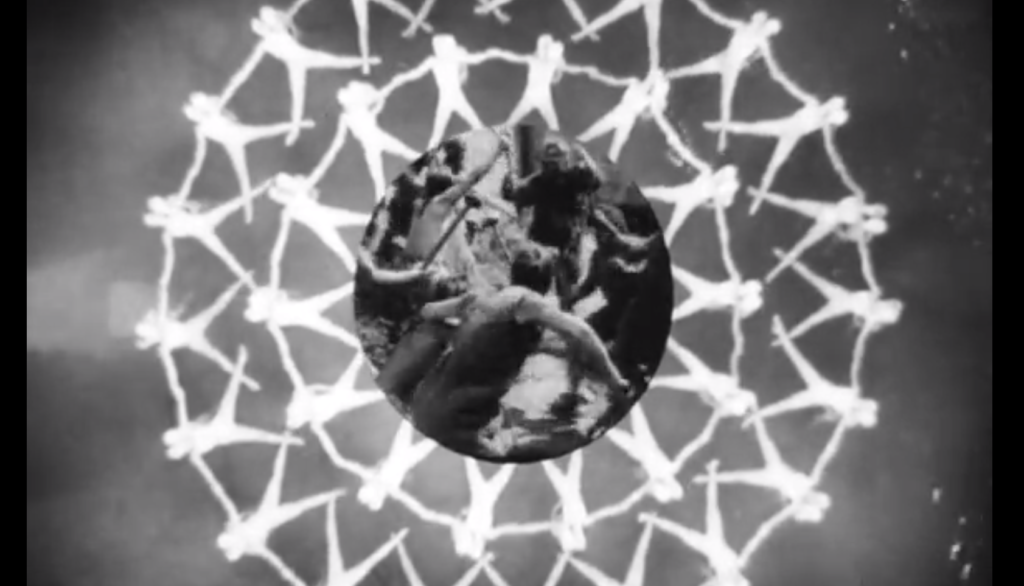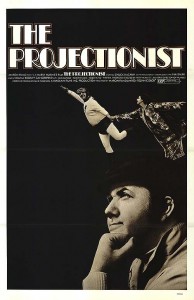|
Genres, Themes, Actors, and Directors:
- Character Studies
- Fantasy
Review:
The Projectionist is a movie made both for and about film fanatics. Character actor Chuck McCann — best known for his voiceover work, though fans of 1968’s The Heart is a Lonely Hunter will immediately recognize him as the mute Spiros Antonapoulos — is perfectly cast in the lead role as an undistinguished projectionist whose passion for movies bleeds through into every facet of his waking life. At first, it seems that the projectionist’s fascination with cinema is one of simple homage to Hollywood: an early scene in which he gazes at a wall full of headshots and mimics the voices of Clark Gable, Jimmy Stewart, Oliver Hardy, and other cinematic icons is a treat. Eventually, however, we become privy to the darker thoughts in the projectionist’s mind — including concerns about racism, tyranny, and the general state of the world — and the film becomes an increasingly surreal, postmodern pastiche of rapidly edited clips and images.
Interwoven throughout the mostly dialogue-free film are fantasy sequences in which the projectionist’s pudgy alter-ego — a superhero named Captain Flash — romances a beautiful damsel (Ina Balin) while escaping from the clutches of “The Bat” (Dangerfield); unfortunately, these silent sequences are oddly uninspired, and not nearly as humorous as writer/director Harry Hurwitz seems to want them to be. Much more impressive is Hurwitz’s seamless editing of McCann into classic movie clips — most notably Casablanca (viewers will doubtless be reminded of Woody Allen’s Play it Again, Sam). Note that fans of Rodney Dangerfield may be disappointed — or at the very least surprised — by his decidedly dark and non-comedic debut role here (though his performance is spot-on).
Redeeming Qualities and Moments:
- McCann’s impressive imitation of a host of movie stars

- A plethora of cleverly edited and integrated classic film clips

Must See?
Yes, simply for its oddball cult status. Listed as a Sleeper in the back of Peary’s book — though it recently gained some acclaim by being placed in the archives of the Museum Of Modern Art in New York
Categories
Links:
|



One thought on “Projectionist, The (1971)”
Just about in full agreement here (a must): what true-blue film fanatic would not love ‘The Projectionist’? It’s a love letter to film and to the ffs who couldn’t live without film – as note the entire final sequence, which takes place in front of the movie screen McCann is projectionist for.
Of course, going in, one must abandon all hope of plot. There really isn’t one. We more or less simply go inside McCann’s movie-obsessed brain and stay there for almost ninety minutes. There is the ‘running gag’ love interest that more or less strings things together – and it’s satisfying to never really know whether or not ‘she’ (Balin) exists – but McCann runs this show just as he runs his projector.
Clearly, McCann’s character yearns to be liked – and he *is* (note how people react to him in the movie theater’s neighborhood as well as the poolhall, etc.) – but, at the same time, it’s also clear there’s a melancholy air about him, and that film fills up his life more than it should. (It’s a little sad to see him home alone after work, in a cramped space, still searching for films on tv as he is surrounded by so many movie posters on his walls that they practically overlap. No wonder he fantasizes about ‘someone’ who might fill up what seems a void.)
As noted, McCann came to this film following his heartbreaking performance in ‘The Heart is a Lonely Hunter’, where he played masterfully in sync with the marvelous Alan Arkin (who – I’ll say it here – *should* have won the Oscar that year). McCann’s work here is a 360-degree turn, and he gives full rein to his comedic strengths (is there *any* famous actor this man cannot do an impression of?!).
I don’t particularly find any flaws in the film. Perhaps that’s because I take it more as a mood piece – and go with the mood. I find it simply charming.